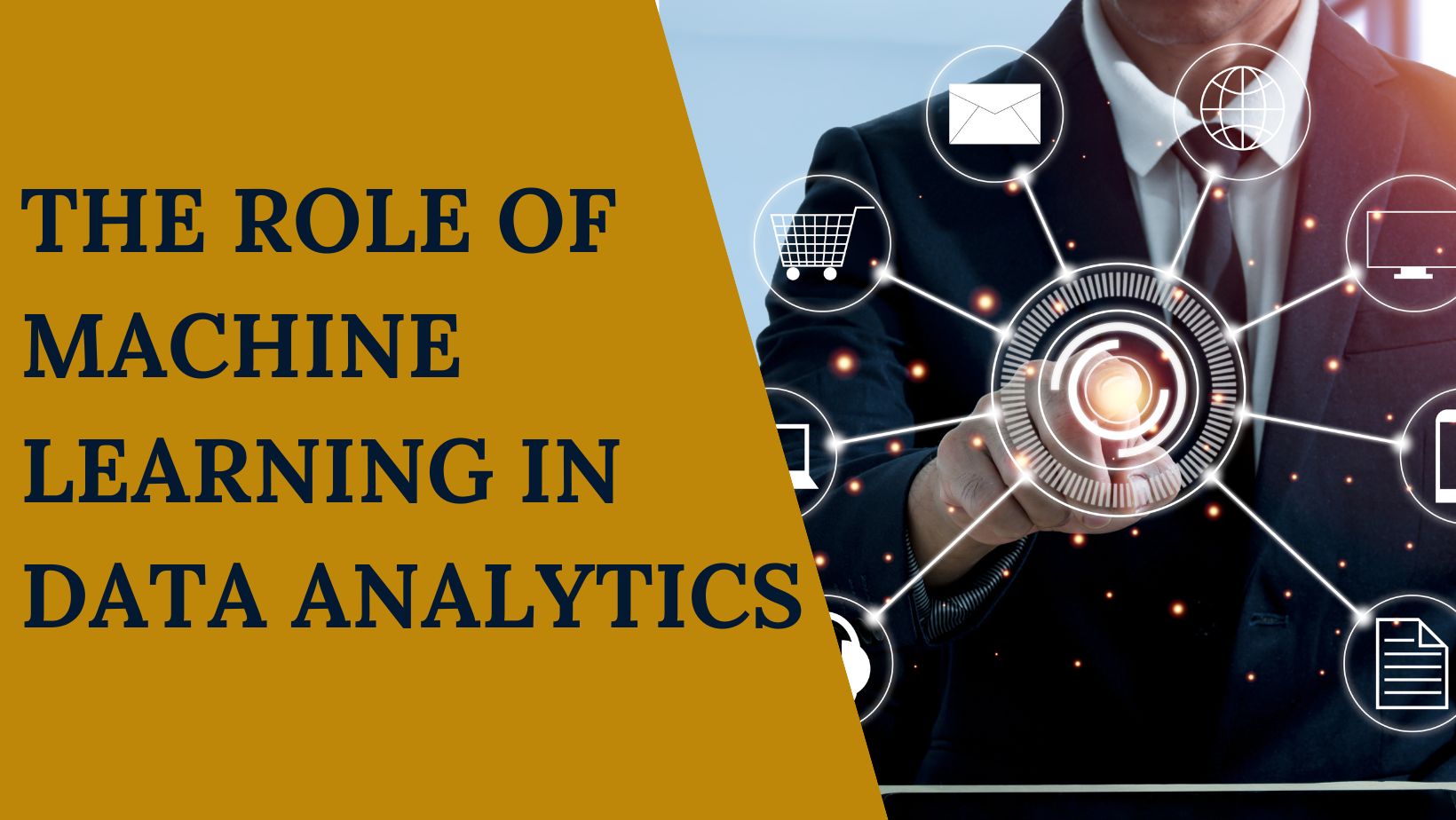In the digital age, data is the driving force behind most business decisions. Data analytics enables companies to gain valuable insights from raw data, helping them make informed decisions. Among the many technologies transforming data analytics, machine learning (ML) plays a pivotal role. Machine learning enhances the ability of systems to analyze, predict, and provide insights at an unprecedented scale and speed.
What is Machine Learning?
Machine learning is a branch of artificial intelligence (AI) that enables systems to learn from data and improve their performance over time without being explicitly programmed. It involves developing algorithms that can identify patterns, learn from those patterns, and make decisions or predictions based on data.
Types of Machine Learning
There are several types of machine learning that play a role in data analytics:
- Supervised Learning: In supervised learning, the model is trained on labeled data, meaning the algorithm knows the correct output. It is commonly used in classification and regression tasks.
- Unsupervised Learning: This type of learning is used when the data is unlabeled. The algorithm explores the data and discovers patterns or relationships within it. Clustering is a typical use case.
- Reinforcement Learning: Reinforcement learning focuses on training models to make sequences of decisions by rewarding desired behaviors and penalizing undesirable ones.
How Machine Learning Transforms Data Analytics
Machine learning has revolutionized data analytics by automating tasks and uncovering insights that were previously unreachable. Below are some key areas where ML impacts data analytics:
1. Automation of Data Processing
Data preprocessing is one of the most time-consuming steps in analytics. Machine learning algorithms can automate the cleaning, sorting, and organizing of data, reducing manual efforts. This enables businesses to process large volumes of data in real-time, accelerating decision-making.
2. Predictive Analytics
Machine learning algorithms are widely used in predictive analytics, allowing businesses to forecast future trends based on historical data. For instance, e-commerce platforms use predictive models to recommend products based on past user behavior, while finance companies predict stock market trends to inform investment strategies.
3. Enhanced Decision-Making
Machine learning models can handle complex datasets that are beyond human comprehension, allowing for more accurate and data-driven decisions. By uncovering hidden patterns and correlations, businesses can make better strategic choices and minimize risks.
4. Real-Time Insights
With the help of machine learning, data analytics can provide real-time insights. Algorithms can analyze live data streams and make real-time predictions or recommendations. This is especially useful in industries like healthcare, where timely insights can improve patient outcomes, or in retail, where real-time personalization drives customer satisfaction.
Use Cases of Machine Learning in Data Analytics
1. Fraud Detection
Machine learning models are employed in fraud detection by analyzing transactional data to spot unusual patterns or anomalies. This proactive approach helps financial institutions minimize losses from fraudulent activities.
2. Customer Segmentation
In marketing, machine learning is used for customer segmentation. It helps companies identify distinct groups of customers with similar behaviors, preferences, or demographics, enabling more personalized marketing strategies.
3. Predictive Maintenance
Manufacturing companies use machine learning in predictive maintenance to predict equipment failure. By analyzing sensor data, algorithms can forecast when machines need repairs, reducing downtime and saving costs.
4. Natural Language Processing (NLP)
Machine learning powers NLP, enabling businesses to analyze large volumes of unstructured data such as customer reviews, social media posts, and support tickets. This helps businesses gauge customer sentiment and improve customer service.
Challenges in Using Machine Learning for Data Analytics
While machine learning brings significant benefits to data analytics, there are several challenges that businesses must navigate:
1. Data Quality and Quantity
Machine learning models rely on large amounts of high-quality data to function effectively. Poor data quality, incomplete data, or insufficient datasets can lead to inaccurate predictions or decisions.
2. Interpretability
Complex machine learning models, such as deep learning, can act like “black boxes,” making it difficult to understand how decisions are made. This lack of transparency is particularly problematic in industries like healthcare or finance, where decisions have significant consequences.
3. Skill Gap
To effectively implement machine learning in data analytics, businesses need skilled data scientists and engineers. The current demand for machine learning experts far exceeds the supply, making it difficult for some organizations to build and maintain ML models.
The Future of Machine Learning in Data Analytics
As machine learning continues to evolve, its role in data analytics will expand even further. Advances in technologies such as deep learning, reinforcement learning, and quantum computing will enable even more sophisticated data analysis.
In the near future, we can expect machine learning to make analytics more accessible, allowing even non-technical users to leverage AI-driven insights. Businesses that embrace this technology will have a competitive edge, making faster, more accurate decisions based on rich, data-driven insights. To take full advantage of this trend, it’s important for professionals to consider enrolling in the best institute for data analytics course in Noida, Delhi, Gurgaon, Pune, and other major cities across India, ensuring they gain the knowledge and skills to thrive in this data-driven world.
Conclusion
Machine learning is reshaping data analytics by automating processes, enhancing decision-making, and providing real-time insights. While there are challenges in terms of data quality, model interpretability, and the skill gap, the future of machine learning in data analytics looks promising. Companies that invest in this technology today will be better positioned to unlock the full potential of their data and stay ahead in an increasingly data-driven world.


